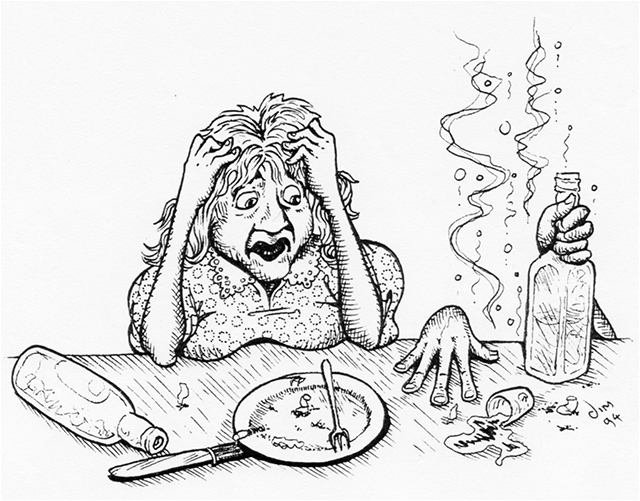Worried about someone’s drinking?
Worried about someone’s drinking?
The information contained on this page, is for you if you are concerned about someone close to you, and their relationship with alcohol. Many other people share this experience with you. You may be the partner, parent or adult child of the drinker, or a close friend.
This page explores some common problems, what you can do, and where you can go for support. It will not take away any problems you may be experiencing, although it may help you to identify a number of different ways to resolve current difficulties. Throughout this page, a key concept is that the person who is experiencing problems with their drinking is choosing to drink (although they may not feel that a choice is involved).

Worried about someone’s drinking?
Why do people drink?
Alcohol is used in many social environments. It changes the way we feel, can reduce inhibition and can help us to feel less anxious (or more confident) around other people. Drinking is often associated with enjoyment and celebration, but we also use it when we feel worried or unhappy, to blank-out feelings we would prefer not to experience.
What is problematic alcohol use?
Alcohol use can become habitual; people can start to rely on the substance to enjoy themselves or to deal with an unchanging situation, stress or unwelcome feelings. The drinker may follow set behavior patterns, sometimes drinking daily.
Drinking in this way has the potential for dependent alcohol use. This happens when the body becomes used to working with a level of alcohol in the bloodstream. If the alcohol is withdrawn, unpleasant (and sometimes dangerous) symptoms develop; the person becomes physically ill, and may need medical help.
Self-help groups like Al-anon (for the families of drinkers) can be very useful. A doctor may be able to help with medical advice and referral to other services.
What if the other person starts drinking again?
It is important that the communication and support is ongoing, particularly once the initial ‘honeymoon‘ period has worn off, and the rewarding ‘new‘ behaviors have become routine. Some drinkers find it takes several attempts to make changes permanent. If the person you are concerned about does suddenly drink again, or starts to engage in patterns of drinking that you have identified as ‘problematic‘ try not to see this as a ‘failure‘.
This is a process that many people go through in their recovery. It is important to try to support the drinker through any difficulties they may be experiencing (bearing in mind your own needs).
Talking (and listening) can help you both to identify what has happened. If an intervention is made at an early stage the person can be helped to re-establish their recovery that much more quickly. Once a person changes their drinking, many other aspects of their life will change. There may be obvious benefits to finances and health, but some changes may be less rewarding.
Your relationship with the drinker will change as their relationship with other people (including you) develop. There may be difficulties or stresses which alcohol has been masking. There may be issues for you when handing responsibility back to the drinker – will they be responsible? Can you trust them? How will their new independence affect you?
So, what can I do?
Firstly, you need to take care of yourself. If you are exhausted, stressed or anxious you are likely to become ill. You are not alone with this. Many people are affected by another’s drinking. You can find support from groups such as Al-anon (support groups for relatives of people experiencing problematic alcohol use), or from a counsellor (who may or may not ‘specialize’ in alcohol-related work), or from family and friends.
Most people who share their experiences with others find support, and discover that there are different options available to them. You are not responsible for the other person’s drinking, but you are responsible for your reactions to their behavior. You need to be clear about what you will and won’t accept. It will be valuable for you to think through how you might respond to difficult incidents (like arguments, a ‘binge‘ or violence) before they occur. There is nothing that says you have to be around behavior that you find difficult to deal with. If you believe the other person is unlikely to change, you may want to consider moving away from them.
How can I help?
We cannot stop someone else drinking, but we can encourage and help them to make changes by helping them to see the choices that are available. The first step for you may be to talk to the person you are worried about openly and honestly, explaining to them the problems their drinking is causing. Communicating directly rather than hinting (for example by leaving information where it will be found) is very important. Choose a time when the other person is sober, and you’re both reasonably calm. Try not to blame or accuse, or to engage in arguments. Listen to the other person. They will have feelings about their drinking, and will have some idea of how it helps them.
You need to make your own boundaries clear. What behaviors won’t you accept? What action(s) will you take if these boundaries are ignored? If other family members can agree to support you then it will be less confusing for the drinker.
The drinker may feel more able to change if they can see the effects their drinking is having. Sometimes, families will unconsciously support the drinker in their behavior, for example by hiding the drinking from other family, friends or colleagues, by drinking with them or by avoiding social situations that will involve alcohol. Often the drinker’s responsibilities will be taken on by other family members.
